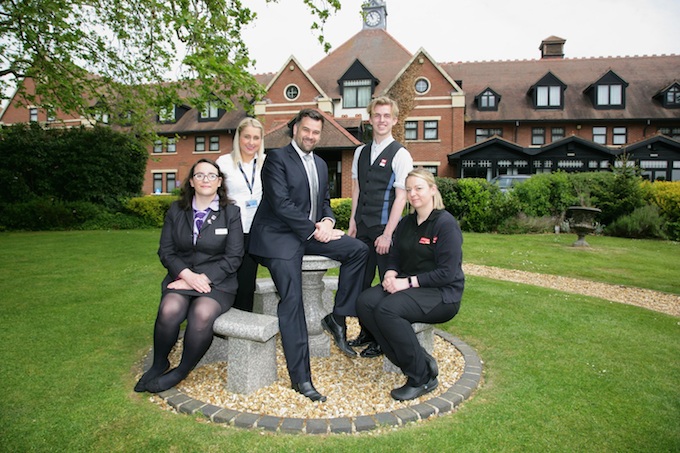Hospitality means business in Shakespeare’s England
Hospitality and Tourism business leaders have secured major funding support to work with schools and colleges in the search for the next generation of hospitality and tourism providers – securing and developing talent for the future of the visitor economy in Shakespeare’s England.
The Shakespeare’s England Destination Management Plan identified that skills and the development of people in the industry was a priority, particularly encouraging school leavers and those starting or considering their career options to seriously consider the visitor economy, hospitality and tourism as their first choice.
Chris Steadman from QHotels, who is leading this project on behalf of Shakespeare’s England, said: “Often, working in our sector is seen as a job, a stop gap or a part time role, it is not seen as a real, successful career option and we must take steps to address this, our sector requires as much skill and talent as other sectors. There are some great opportunities for careers in our sector, to develop and grow and to reap success.”
Using the outcomes of the DMP work as a springboard, Chris put together a bid to Warwickshire County Council’s Skills for Employment fund, for a project which focused on taking the visitor economy and hospitality careers message to students, to teachers and to parents – to engage with them and to showcase the potential and the opportunities, to give real life examples of success and development and to understand what the barriers are which are stopping young people from choosing a career in the sector.
Importantly, this project will lead to fulfilling work experience, hands on understanding, and real life work in the sector, for students considering their future career options.

Chris Steadman, centre, with young workers from the participating companies, from left: Hannah Coote, The Stratford Hotel; Lucy Baird, Birmingham Airport; George Sothcott, RSC; and Anneka Sharp, Shakespeare Birthplace Trust
Activities centre around two major events ‘All Roads Lead to Hospitality Mean Business’ on 27 June (Rugby) and 29 June (Stratford-upon-Avon), where there will be keynote expert speakers and a discussion forum bringing together students, education providers, hospitality professionals and tourism specialists. It will also link to formal processes for work placements and work experience with some of Shakespeare’s England’s partners and members.
This will then be underpinned by expert visits and lectures, dedicated work placements to drive awareness and a formal Hospitality Steering group linked to the skills priority on the DMP steering group.
Glenn Robinson, Skills for Employment Programme Manager at Warwickshire County Council, said: “This project is about celebrating a career in tourism and hospitality, spearheaded by industry leaders who are already in dialogue with our education leaders. We are keen to bring employers, education and potential employees together in a meaningful way and are delighted to support a project which has such a strong foundation, clear outcomes and measures of success, which we will be able to use as case studies in future and build on”.
Participants include Birmingham Airport, QHotels and Macdonald Hotels, the Royal Shakespeare Company, the Shakespeare Birthplace Trust, Warwick Castle and Shakespeare’s England themselves. However, this will extend across the 107 members of the DMO ranging from small independent businesses through to large national companies so the outreach in the local business sector is a huge catchment for this project.
Jo Lloyd, chair of Shakespeare’s England, said: “This project will shine a light on careers in hospitality – including succession planning that is evident within the visitor economy and hotel industry and the opportunities this allows for progression in this area and throughout the world. Whilst Warwickshire has a very low unemployment, we have identified there are gaps in the hospitality and tourism sector and this will be a major step towards addressing these issues.”




